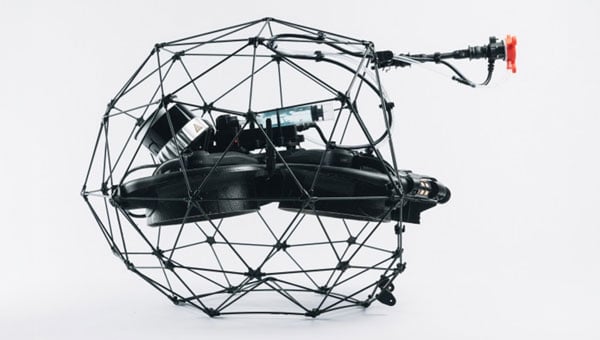GPS and GNSS Cannot Count on Good Sense in Government

You’ve got to put some in yourself, to get some out.
Don’t expect the FCC to make a rational decision in the Lightsquared versus GPS case. As clear as the conclusions may seem to an engineering mind examining the Technical Working Group’s report on the subject, the Federal Communications Commission does not maintain engineering minds at its top level. That’s the level that makes the decisions, and it is driven by money and politics in equal measure. The only things that will get the FCC’s attention are legislators and strong opposition from citizens.
Comments in the FCC docket so far come largely from the surveying and agriculture communities. The rest of the GNSS industry has not shown up. Individuals count, too, not just companies. Here’s how to make your voice heard, and why. Time’s a-wastin’.
HERE’S HOW.
The FCC will accept public comments on the LightSquared interference with GPS issue until July 30, and replies to those comments until August 15, 2011. After the public comment period is closed, the FCC can render a decision at any time.
Comments may be filed electronically using the Internet by accessing the ECFS.
Follow the instructions provided on the website for submitting comments. First, click “Submit a Filing.” Once the following screen comes us, in the first box labeled "Proceeding Number" enter 11-109. You’ll then be required to enter identifying information into the form and add your comments. In completing the transmittal screen, ECFS filers should include their full name, U.S. Postal Service mailing address, and IB Docket No. 11-109.
Supply information on how you use GPS and what would happen if GPS became unavailable or unreliable. GPS World suggests including comments that state LightSquared’s operations and GPS are fundamentally incompatible and that the FCC should not permit LightSquared to use its mobile satellite services frequency for terrestrial broadcast. You may wish to add that the FCC’s own Technical Working Group tasked with investigating this issue, and the Departments of Defense and Transportation, all agree on this.
It may further be worth adding that GPS is an important, if not vital, resource for a wide range of users — not just yourself or your industry sector. These include many life- and safety-critical applications.
AND HOW.
Whether or not you file a comment by the July 30 deadline (that’s THIS Saturday), I urge you to immediately write on the same subject to both your U.S. senators and to your congressperson in the U.S. House of Representatives.
To find your U.S. senator, go to this website and enter your state in the pull-down menu. You’ll get name, e-mail, phone, and mailing address.
To find your representative in the House, go to this website and proceed similarly.
GNSS community members in Europe, Asia, Africa, Latin America, and elsewhere may write to the U.S. State Department representative tasked in this matter: clorere @ state.gov.
I submit that GPS needs your help, now. If the mothership goes down, the case for other GNSS only becomes more difficult, not less so. And similar attacks may soon be mounted against GNSS internationally, if encouraged by success on this front.
NOW, WHY.
Some troubling trends that I hope will stir you to action:
Troubling Trend Number One. The test results, conclusions, and recommendations of several comprehensive studies, conducted by a combination of industry, government, and independent organizations (NPEF, TWG, RTCA) over a period of months, are currently being questioned, downplayed, dismissed, and/or ignored by FCC and NTIA, while at the same time ad hoc, wild-eyed claims by LightSquared with no substantiation in either fact or test data appear to have attained the same status as gospel truth with these august bodies.
Troubling Trend Number Two. The so-called solution proposed by LightSquared claims to eliminate interference to "99.5 percent" of GPS receivers — although nowhere is this solution supported with any factual basis or evidence whatsoever.
When unsubstantiated claims are made in the public arena, one can surmise either or both of two things:
- Those making the claims are confident that no one is awake enough or cares enough to examine the claims carefully.
- Those making the claims are confident that they have some sort of fix in with the decisive powers — so it doesn’t matter what kind of case they make, as long as there is the semblance of one, transparent or not.
Upsetting Trend Number Three. As to the applications and importance of the "0.5 percent" remaining receivers, we may well ask: How many users and beneficiaries of these "0.5 percent" are there? You know and I know that this number, a wild guess at that, represents the high-precision receivers for which no LightSquared so-called solution will work. The beneficiaries of GPS use in survey, construction, and agriculture certainly number in the hundreds of billions, if not higher.
Ask your better half: Does only 0.5 percent of the U.S. population eat?
Alarming Trend Number Four. LightSquared blandly maintains that it has been around for 10 years or more, and people believe this statement.
Fact: LightSquared bought the assets of a company called SkyTerra, which had great difficulty making its business case work and was thus extremely ripe for acquisition at an attractive price. SkyTerra descended in similar fashion from another company, MSV (Mobile Satellite Ventures), which also had great difficulty making its business case work and was also extremely ripe for acquisition at an attractive price.
Thus, LightSquared’s ancestral history is turbulent. This page gives a fairly good summary of a key episode.
LightSquared says that in 2002 and 2003 it was "operating under a different name." No, those were different companies. Where were the LightSquared executives back then? Working for other companies, that’s where. Hard to be the same company with a different name, different address, and completely different personnel.
If they can’t tell you honestly who they are, how can you trust anything they say?
Nowhere on the LightSquared web site does the company mention its heritage or link to MSV and/or SkyTerra. Instead, it continually speaks about its new vision and how new and novel it is in the world of broadband.
Bald-faced Lying Trend Number Five. LightSquared says that its business plan has been consistent throughout the period from 2002 (the MSV and SkyTerra era) to the present, and people in power at the FCC nod their heads.
No. Not the case. False statement. Lie.
SkyTerra and MSV had business plans that used the "ancillary terrestrial component" (ATC) as the regulators intended, as a gap-filler, with its primary service being provided by satellite. ATC signals could not interfere with satellite signals without undercutting the company’s primary service. This worked for GPS as well.
SkyTerra and MSV went out of business trying to make their business plans work while complying with the ATC requirements.
Enter LightSquared in 2010, with the new broadband vision and the new business plan to — hold fo
r it now — flout ATC requirements, ignore them, demolish them, waive them out of existence, all with the FCC’s willing cooperation.
The LightSquared waiver request of November 2010 upset the heretofore fundamental foundation for even considering ATC in L-band. LightSquared does not provide a primary satellite service, but instead is a terrestrial service — completely different from the business plans of the predecessor companies, and completely at odds with the original intended use of L-band for ATC.
Smelling a Rat in the Smokehouse Trend Number Six. The FCC continues to back LightSquared, to the point of ignoring positions put forward very strongly by top-ranking officials in the U.S Department of Defense, the U.S. Department of Transportation, other U.S. government agencies, Congress, industry and public groups.
Part of this is “because they can." The FCC is a so-called independent agency. However, it is part of the administrative arm of U.S. government, under the direction, appointments, and pleasure of the White House. There are Congressional investigations of FCC contact with the White House (Representative Issa) and on contact with LightSquared (Senator Grassley).
There are numerous reports in various quarters of other close ties between Administration officials and LightSquared.
In that regard, I commend to you these two articles:
Big payday for U.S. ambassador with stake in go-go wireless Internet firm
By John Aloysius Farrell and Fred Schulte. July 22, 2011
Donald Gips, the top Obama aide who became ambassador to South Africa, cashed in his stock options for LightSquared, a new wireless Internet firm, for as much as $500,000 ten days after the company won a favorable decision from the Federal Communications Commission, newly released documents show.
Gips, a friend and major campaign fundraiser of President Obama, was the White House personnel chief until being appointed ambassador to South Africa in 2009.
That’s half a million dollars, people.
Politically-connected LightSquared pushes wireless Internet plan despite GPS concerns
LightSquared’s ties to Obama’s supporters and the administration’s policy interests run deep. Several major Democratic campaign contributors and longtime Obama supporters have held investments in the company and its affiliates during its tangled decade of existence.
Obama installed one of his biggest fundraisers, Julius Genachowski, a campaign “bundler” and broadband cheerleader, as chairman of the FCC, which granted LightSquared a special waiver to operate.
“The more that’s revealed, the more questions there are,” said U.S. Sentor Charles Grassley."Without transparency, the public can’t know whose interests the FCC is pursuing and so can’t trust the agency’s work. The FCC should comply with my request for information to uphold the public’s trust.”
















Follow Us